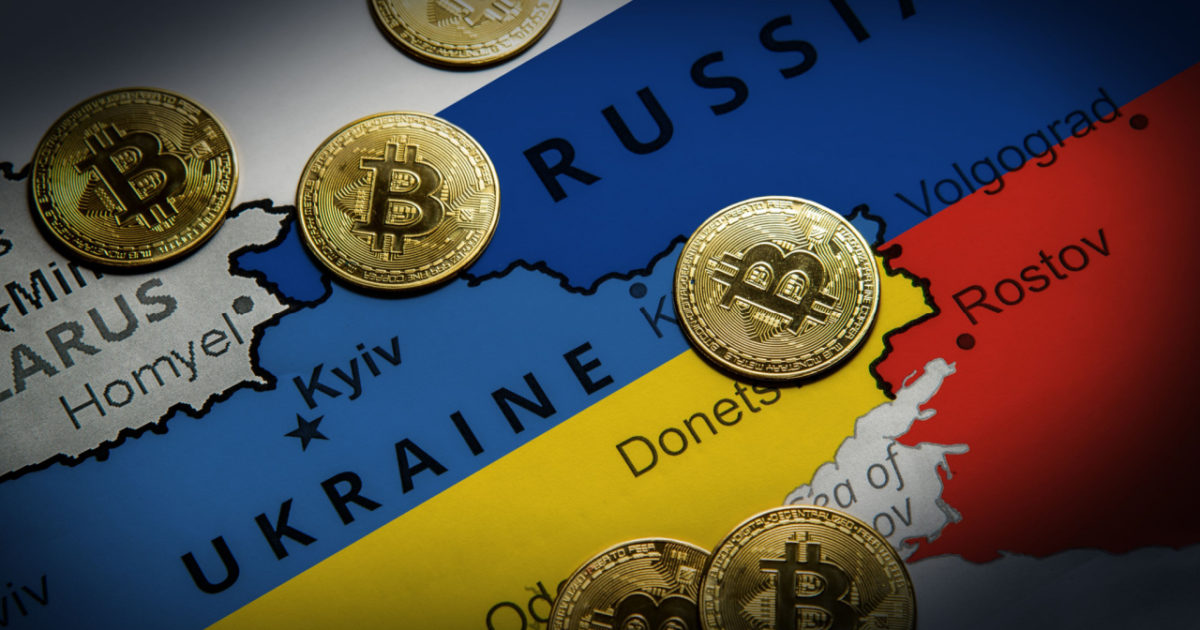The law enforcement and counter-intelligence agency of Ukraine has managed to seize the funds in a cryptocurrency wallet used to finance the Russian military campaign in the country. Officials in Kyiv claim that money collected through the wallet has been spent on military equipment for the pro-Russian separatist forces in the east.
Ukraine Seizes Crypto Donations Funding Russia’s Invasion
The Security Service of Ukraine (SBU) has for the first time implemented a mechanism to curb fundraising through cryptocurrency for the troops fighting on the Russian side in the ongoing hostilities in the country. The conflict escalated into a full-scale war when the Russian army crossed the Ukrainian border in late February in what Moscow calls a “special military operation” in support of the pro-Russian breakaway regions of Luhansk and Donetsk.
In a press release on Tuesday, the SBU announced that a crypto wallet operated by a citizen of the Russian Federation and used to sponsor Russia’s military effort in Ukraine has been blocked. The man, who presented himself as a volunteer, has been gathering money for the needs of the Russian forces since the start of the invasion.
The wallet had accumulated digital coins worth 800,000 hryvnia (almost $22,000 at current rates) by the time it was blocked, the SBU said, adding that the funds have since been seized. Experts are now working to track the related transactions and transfer custody to Ukraine. The agency did not specify how it seized the wallet but revealed that it was assisted by foreign crypto companies.
Ukrainian investigators have been able to establish that the wallet’s owner devoted a significant portion of the donated crypto to the purchase of military supplies for the separatist fighters of the self-proclaimed Luhansk and Donetsk People’s Republics. Representatives of the National Police of Ukraine and the Prosecutor General’s Office also took part in the operation.
Russian ‘Volunteer’ Active on Social Media
The Russian activist has been actively seeking financial assistance on social media platforms since the latest phase of the conflict began. To promote his efforts, he has been creating and regularly posting photo and video content, distributed posts published by associates and reported on the use of the collected funds, the SBU detailed without revealing the Russian’s identity.
A report by the blockchain forensics firm Chainalysis unveiled last month that 54 pro-Russian groups have collectively received over $2.2 million worth of cryptocurrency. These organizations, operating out of Donetsk and Luhansk, got most of the donated amounts in bitcoin (BTC) and ether (ETH) but other cryptocurrencies as well.
Ukraine itself has been relying on crypto donations, with both the government in Kyiv and volunteer groups raising digital money to fund defense efforts. Ukraine’s Minister of Digital Transformation Mykhailo Fedorov recently announced on Twitter that $54 million worth of crypto funds collected through the Aid For Ukraine initiative have been spent to purchase body armor, medicines, night sights, and even vehicles for the Ukrainian army.
The Ukrainian people has also received purely humanitarian aid from the crypto community and industry. European crypto exchange Whitebit, which has Ukrainian roots, offered to support Ukrainian refugees through its representative offices abroad and the world’s largest coin trading platform, Binance, issued a special crypto card for Ukrainians forced to leave their homes.
Do you expect Ukraine to block more crypto wallets used to finance the Russian military offensive? Tell us in the comments section below.
Image Credits: Shutterstock, Pixabay, Wiki Commons, Yalcin Sonat
Disclaimer: This article is for informational purposes only. It is not a direct offer or solicitation of an offer to buy or sell, or a recommendation or endorsement of any products, services, or companies. Cryptox.trade does not provide investment, tax, legal, or accounting advice. Neither the company nor the author is responsible, directly or indirectly, for any damage or loss caused or alleged to be caused by or in connection with the use of or reliance on any content, goods or services mentioned in this article.




